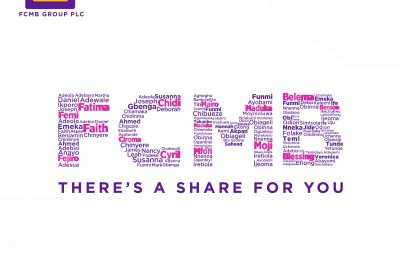Communication skills are highly important in the ever-evolving workplaces of today. Communication helps to ensure that you express yourself properly and maintain good professional relationships with your colleagues. They also help in ensuring the seamless and effective circulation of information in the workplace.
Here are some communication skills you need to master this year:
Listening


Listening is so essential because it is backed with intention. When you listen, you do so with the aim of processing and understanding the information you receive, so that the communication process can flow smoothly. As an employee, you need to practice active listening, where you pay attention carefully to what you’re being told, asking questions for clarification, using verbal affirmations and rephrasing the questions to be sure you understand.
Non-verbal Communication


As the name implies, non-verbal communication involves communicating without speaking. It includes body language, eye contact, hand gestures, tone of voice and more to give the other party or your audience, a grasp of what you’re communicating. You should maintain eye contact with whoever you’re talking to, so he/she can get the sense that you’re focused on what you’re communicating and that you’re telling the truth(However, you shouldn’t stare, that’s somewhat creepy). You should also maintain a relaxed posture/ disposition, so you can appear friendly and welcoming.
Top Flexxzone Picks
How To Manage Conflicts With Colleagues At Work
Habits That Could Earn You A Bad Reputation At Work
Millennials & Gen Zs! This Is How To Make A Difference At Work
Empathy


Empathy involves putting yourself in the other person’s shoes and respecting their views even if they differ from yours. This is very helpful in conflict resolution, as it helps to understand the other party’s stance and opinions.
Open-Mindedness
It would help if you always went into a dialogue with an open mind, not a planned agenda. Go with the aim of understanding your colleague’s point of view (even if you disagree) and reaching a common ground.
Confidence


Confidence is an essential tool in communication. Showing confidence gives your audience (colleagues, customers, clients, etc.) the reassurance that you know what you are doing and that you believe in what you are saying. It also gives them faith that you will back it up with action. If you are trying to convince a colleague or client that you’ve got a situation under control, you need to demonstrate confidence that will put their minds at rest and assure them that you will deliver on your word.
Respect
Respecting your colleagues (and their opinions) is very important in the workplace. When you call them by their names, make eye contact with them, listen to them and give them your full attention while speaking to them, you are showing that you respect them and they will feel more comfortable around you. Always avoid getting distracted when someone is speaking to you, so you can have a good discussion and show that you respect them.
Clarity and Succinctness
Communication in the workplace should be clear and concise. Ensure that you pass your message directly and transparently, making it easy for the other party to understand what you’re saying without having to repeat yourself over and over. Also, ensure that you avoid taking too much by learning how to tell a lot with a few words. Whether you’re sending an email or having a face-to-face conversation, your words should be concise and brief.
Friendliness


Don’t be the employee who’s always carrying ‘strong face’ up and down the office, scaring others away. No matter how you feel, it would be best if you tried to be friendly with your colleagues, especially when you have a dialogue with them. Give them a little smile, use a warm tone, greet them properly and even ask a personal question (e.g. ‘How is your day going?) that will put them at ease. This applies to verbal communication and virtual communication (e.g. mails)
Feedback


Feedback is essential in communication, as it gives the impression that you have been paying attention. Feedback could be follow-up questions, a status update, a commendation for a job well done, constructive criticism and more.
Emotional Intelligence


This involves the ability to understand and assess your emotions, so you can communicate properly and handling interpersonal relationships judiciously with sound judgement. It also consists of evaluating and identifying the feelings of the other party as well. Learning to put your emotions under control when communicating with others helps to avoid conflicts and bad blood. This is a skill that has to be learned and developed willfully over time.
Which of these communication skills have you mastered and how have they helped you in the workplace? Tell us in the comments section.






























Leave a Reply